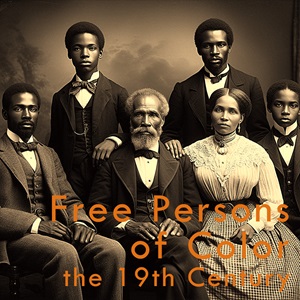
Central Pennsylvania's journey
from enslavement to freedom
“I did my best; it wasn’t much. I couldn’t feel, so I learned to touch.
I told the truth, I didn’t come to fool you
And even though it all went wrong, I’ll stand before the Lord of song With nothing on my lips but Hallelujah!.” —Leonard Cohen, "Hallelujah", performed by Kate McKinnon, 12 November 2016.
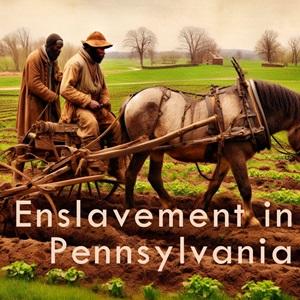
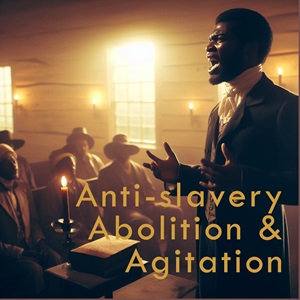
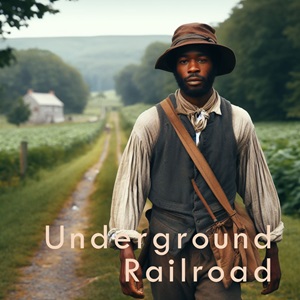
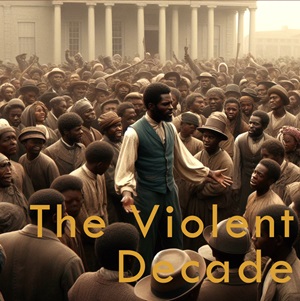
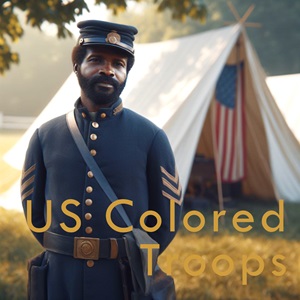
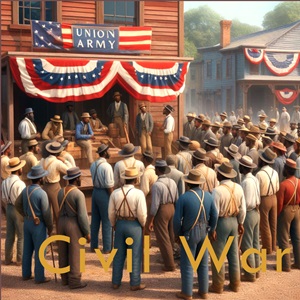
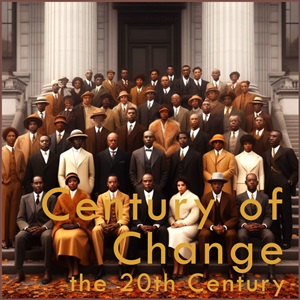
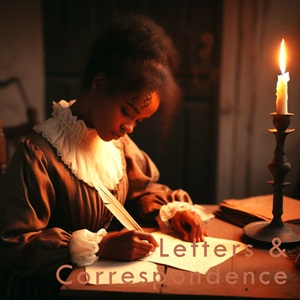
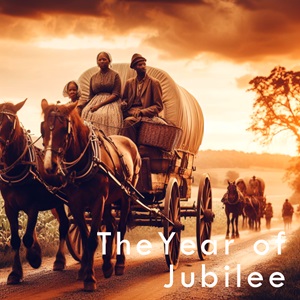

Year of Jubilee back in print
The Afrolumens Project book, The Year of Jubilee (2 volumes), is back in print and available on Amazon. Updated with new covers, the volumes are at the links below.
The Year of Jubilee: Men of God, available here
The Year of Jubilee: Men of Muscle, available here
New Items
- An advertisement from 1752 Philadelphia to place two infant boys, raises many questions
- Enslaved People, Prize Law and Courts of Admiralty, cases from the Revolutionary War
- Sale of the Privateer Marlborough and its slaves
- John Hall and Negro Elizabeth Declare Themselves Free
- November 1781: Dick Butcher, sold multiple times, finally escapes to Philadelphia where he ships out on a privateer and ends up in the middle of vicious sea battles with British warships.
- July 1719: Johney Escapes From Virginia First newspaper ad for an escaped slave published in a Philadelphia newspaper.
- Fugitive Slave Recovery Document for Isaac, 1804 From slaveholder W. James Brown of Cumberland County.
- Image of a pass for free Black man Edward Butler issued in 1806 in Gettysburg, Pennsylvania.
- Summary and text of the 1826 Pennsylvania Supreme Court Decision that ended the illegal enslavement of the children of term slaves.
- What does "Country-born" mean? What are pantaloons, castor hats and pistoles? Why would a captured runaway be put in a goal?
Escape notices, documents and advertisements for enslaved people are filled with obscure and archaic terms. The Afrolumens Project has created a quick-reference glossary: Afrolumens Glossary of Enslavement Terms..
On This Date
February events important to local African American history (see the whole year)
February 1, 1861: Texas becomes the seventh state to secede from the Union. February 1. 1865: Illinois becomes the first state to ratify the 13th Amendment to the Constitution, abolishing slavery. February 1, 1902: Langston Hughes, poet and writer, is born in Joplin, Missouri. February 2, 1866: President Andrew Johnson meets with a delegation of African Americans, led by Frederick Douglass, who ask him to support the vote for African American men. Johnson refuses to support the idea. February 3, 1837: The Pennsylvania Antislavery Society is formed in convention at Shakespeare Hall in Harrisburg. Attendees include Dr. F. Julius LeMoyne, Charles C. Burleigh, Jonathan Blanchard, and Benjamin Lundy. February 3, 1977: The final episode of the televised version of Alex Haley's Roots draws the highest ratings ever to that point. February 7, 1926: The first "Negro History Week" to be observed begins. Educator Dr. Carter G. Woodson designates the second week of February as a week for his students to study the accomplishments and history of African Americans. February 8, 1865: Delegates to The State Equal Rights Convention of Colored People of Pennsylvania meet in Harrisburg to again petition for the restoration of the vote to African American men. February 8,1915: D.W. Griffith's motion picture "Birth of a Nation" is released. Its blatantly racist imagery provokes the NAACP to boycott the movie and protest its screenings. It is in response to this movie, however, that African American cinema begins to appear and flourish. February 9, 1802: "Negro Elizabeth" takes out an advertisement in the York Recorder, giving notice to all that she was formerly enslaved by Joseph Chambers, deceased, but is now living as a free woman in the Borough of York. To anyone who might lay claim to her, she added that she "she means to continue (living free in York), and to insist upon her right to freedom. February 10, 1927: Soprano Leontyne Price is born in Laurel, Mississippi. Price made her Broadway debut in 1952, and her operatic debut in 1957. February 12, 1793: Passage of the first Federal Fugitive Slave Act, intended to replace the legal maze of local, state and pre-existing federal laws regarding fugitive slaves. February 12, 1909: The National Association for the Advancement of Colored People (NAACP) is formed as a means to protect African American rights in the courts. February 15, 1851: The "Shadrach Rescue" takes place in Boston. Fred Wilkins, known as "Shadrach," was seized by federal officials as a fugitive slave, but the well-known local man was successfully rescued from the courthouse by a crowd of fifty African Americans. None of those charged in the rescue was ever convicted. February 18, 1969: Simmering racial unrest flares up in Harrisburg's schools. Arson fires and assaults on students caused the John Harris, William Penn and Camp Curtin schools to close for a day until order could be restored. John Harris High School was closed again due to "open rebellion," in the words of school superintendent Glenn Parker, on February 20. February 20, 1895: Death of Frederick Douglass. February 21, 1803: The first of several disastrous fires strikes York borough when the stable of Richard Koch burns to the ground. An occurance of severe fires every few days leading local officials to suspect arson. Suspicion falls upon local African American residents and is seemingly confirmed when a young African American resident is caught setting a fire. Curfews and travel restrictions are placed upon free and enslaved Black residents within a ten-mile radius of the borough. At a trial in May, several are convicted and sentenced to imprisonment of up to twelve years in the penitentiary at Philadelphia. The fires are generally assumed by many historians to be an expression of violent resistance to the February conviction of an enslaved York woman, Margaret Bradley, charged with poisoning two white women in the town. February 21, 1965: Malcolm X is assassinated at the Audubon Ballroom in Harlem. February 22, 1839: Octavius Valentine Catto is born in Charleston, South Carolina. Catto became a teacher at Philadelphia's Institute for Colored Youth and was invaluable in raising large numbers of African American troops during the Civil War. A tireless equal rights activist, Catto was murdered on Election Day, October 10, 1871 by opposition party rowdies. February 22, 1841: Painter Grafton Tyler Brown is born in Harrisburg. February 22, 1861: Abraham Lincoln stops in Harrisburg on the way to his inauguration in Washington. The President-elect and his entourage arrived by train on Market Street at two o'clock, p.m., to a welcoming committee headed by Governor Andrew Gregg Curtin backed by thousands of Pennsylvania militiamen. The presidential party stayed at the Jones House on Market Square. About four hours later, the President-elect was spirited out of town, under cover of darkness, to a waiting train, for a hair-raising night journey to Washington, to foil an assassination plot. February 22, 1888: Painter Horace Pippin is born in West Chester, Pennsylvania. Pippin is perhaps best known for his painting "John Brown Going to his Hanging." February 23, 1869: W.E.B. DuBois is born. February 24, 1811: Daniel Alexander Payne is born in Charleston, South Carolina to free African American parents Martha and London Payne. Daniel Payne attended the Lutheran Seminary at Gettysburg in 1835 and went on to become the sixth bishop of the A.M.E. church. He founded Wilberforce University, becoming the first African American president of a college. February 24, 1837: An anti-abolition meeting in Susquehanna Township elects trustees to manage the Hailman Schoolhouse in the township. The citizens charge the trustees with allowing the use of the schoolhouse for preaching, "but in no event shall they open the door to lectures on abolitionism, negroism, and amalgamationism." February 25, 1782: Thirty-year-old Hercules Johnston, "a mulatto," enlists in the Fourth Pennsylvania Regiment, in Carlisle. Johnston is described as "5 Feet 8 inches high, born in Paxtang, Lancaster county (now Dauphin County), short black curled hair, a blemish on his left eye, yellow complexion, by trade a hammerman." February 25, 1870: Hiram Revels, first African American in the U. S. Senate, begins his term. February 26, 1869: Congress approves the Fifteenth Amendment to the Constitution, giving the vote to African Americans. The amendment must be ratified by the states.
Read the full story of the first Anti-Slavery Convention in Harrisburg here.
February 6, 1820: First American freed slaves establish a colony on the coast of Liberia under the auspices of the American Colonization Society. The Elizabeth, called the "Mayflower of Liberia," departs from New York carrying 86 free African Americans, bound for Sierra Leone.
See the enslavement listing for this person, and an image of her advertisement, here.
Read more about the background of the first Fugitive Slave Act.
February 14. 1818: Abolitionist Frederick Douglass is born into slavery on the Eastern Shore of Maryland as Frederick Augustus Washington Bailey. He changed his last name to Douglass after his escape and settlement in the town of New Bedford, Massachusetts. Because his actual day of birth was unknown to him, Douglass adopted February 14th as his birthday.
See also September 3, 1838.
February 18, 1688: The "Germantown Protest" is written. Garret Hendericks, Derick up de Graeff, Abraham up den Graef and Francis Daniell Pastorius, four Quakers at Germantown, Pennsylvania, write a protest against the enslavement of Africans. Based upon the Golden Rule, it was delivered to the larger Monthly Meeting, where it was not acted upon and was largely ignored.
Read about other early anti-slavery activists in Pennsylvania here.
February 20, 1843: Paxton Lodge No. 5, an African American Masonic Lodge, is established in Harrisburg.
A biography of Octavius Valentine Catto is here.
Read a detailed account of Lincoln's appearances in Harrisburg here.
Read about Daniel Alexander Payne's anti-slavery acitivites Central Pennsylvania here.
The url address of this page is: https://www.afrolumens.com/index.htm
